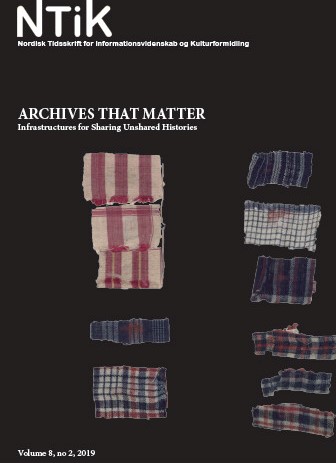African Diasporic Choices
Locating the Lived Experiences of Afro-Crucians in the Archival and Archaeological Record
DOI:
https://doi.org/10.7146/ntik.v7i2.118481Nøgleord:
Danish West Indies, Historical Archaeology, Digital Humanities, African Diaspora, Sartorial Practices, AdornmentResumé
The year 2017 marked the centennial transfer of the Virgin Islands from Denmark to the United States. In light of this commemoration, topics related to representations of the past, and the preservation of heritage in the present -- entangled with the residuum of Danish colonialism and the lasting impact of U.S. neo-imperial rule -- are at the forefront of public dialogue on both sides of the Atlantic. Archaeological and archival research adds historical depth to these conversations, providing new insights into the lived experiences of Afro-Crucians from enslavement through post-emancipation. However, these two sources of primary historical data (i.e., material culture and documentary evidence) are not without their limitations. This article draws on Black feminist and post-colonial theoretical frameworks to interrogate the historicity of archaeological and archival records. Preliminary archaeological and archival work ongoing at the Estate Little Princess, an 18th-century former Danish sugar plantation on the island of St. Croix, provides the backdrop through which the potentiality of archaeological and documentary data are explored. Research questions centered on exploring sartorial practices of self-making engaged by Afro-Crucians from slavery through freedom are used to illuminate spaces of tension as well as productive encounters between the archaeological and archival records.
Downloads
Publiceret
Citation/Eksport
Nummer
Sektion
Licens
Forfatter og tidsskrift har ophavsretten, men må citeres med angivelse af kilden.





